The Myth of Righteous Wrath: Why we crave revenge (and how to break the cycle)
From fury to justice – how to transform anger into power
You can listen to this piece on YouTube.
***
Have you ever fantasised about revenge?
Be honest. Maybe you wanted to expose a liar, get payback on a cheating ex, or see someone who wronged you finally get what they deserve.
Of course, you’re not alone. In fact, studies show that just imagining revenge activates the brain’s reward system. But if revenge is supposed to feel so good, why does it rarely give us peace?
Let's rewind to the mythical beginning.
What the Orestes myth teaches us about anger
Orestes stood trembling, his mother’s blood still staining his hands. Vengeance for his father's death had driven him to matricide, but now the weight of his deed bore down on him. As we all do when seeking revenge, Orestes had believed his pain would end once retaliation was done. But the gods had other plans.
From the shadows, they came: the Furies, ancient and merciless. Hair writhing like serpents and eyes aflame with unyielding wrath, they screamed through Orestes' mind – the sound of a thousand injustices crying out at once – and they tore at his sanity night and day, pursuing him no matter where he fled.
Desperate, Orestes stumbled into the temple of Apollo and begged for mercy. "You commanded me!" he cried. "You told me to avenge my father! Now these monsters tear me apart!"
Apollo – voice even and measured as always – told Orestes to go to the temple of Athena, for she alone could bring order to this chaos.
And so, demons close on his tail, Orestes did just this, and Athena convened a trial – the very first of its kind. At this trial, the Furies demanded blood for blood. Apollo, however, defended Orestes, declaring his act divinely sanctioned. When finally the votes were cast, the jury was tied between guilt and innocence.
Athena rose. "I cast the deciding vote," she said, "and I vote for mercy."
As Orestes was acquitted, the Furies shrieked in protest. But Athena, wise and unyielding, stepped forward. "You are not banished," she said. "Your wrath is ancient, your purpose essential. But now, I offer you a new role: become the Eumenides, the Kindly Ones – protectors of justice and guardians of balance. Your place will be honored here in Athens if you lay down vengeance, and take up harmony."
The Furies paused, rage flickering like a waning flame, but then, slowly, they accepted. Their serpents coiled into stillness, their cries softened to whispers, and Orestes, free of his torment, walked away into the light of a new dawn, carrying with him the scars of his journey but also hope of redemption.
The psychology of anger
It's not hard to guess the evolutionary purpose of anger. This emotion alerts us to injustice or threat, and readies us to fight for our lives, loved-ones or possessions. This is why we can so easily feel angry with someone we've never even met if they are, say, having an affair with our partner or climbing the professional ladder and posing a risk to our job. In these kinds of situations, our emotions are urging us to confront the threatening individual and do battle to hold onto our marriage or role, etc.
Unlike other animals, humans have the capacity for moralistic anger as well as the more obvious personal kind. This means we can feel wrathful on behalf of other people, too, which is why humans come together to protest or otherwise confront oppressive regimes or liberty-taking powerful individuals. Good!
As psychologist Harriet Lerner explores in The Dance of Anger, the ability to express anger is crucial to psychological, physical and relational health because repressed, denied and unspoken, anger can trap us in a relentless cycle of resentment and guilt that boils and festers within.
“Letting go of anger and hate requires us to give up the hope for a different past, along with the hope of a fantasized future. What we gain is a life more in the present, where we are not mired in prolonged anger and resentment that doesn't serve us.”
― Harriet Lerner, Why Won't You Apologize?
The challenge, of course, is that wrath's not easy to let go of. In fact, we are so wired for revenge that the act of plotting against someone we feel angry with stimulates reward chemicals in the brain, making it very enjoyable indeed.
Is Wrath Sinful?
But if anger and even joy in revenge are neurological inevitabilities, why would wrath have a place on the list of seven deadly sins?
Obviously, anger itself is not sinful. No emotion is fundamentally good or bad; it's only our expression of an emotion that can fall short of acceptable. So we need to learn how to express anger in healthy, allowable ways, right?
Unfortunately, it might not be that simple: whether or not your expression of anger is considered acceptable may have more to do with your race, gender (or position in some other category of marginalisation) than it does anything else.
According to Dr. Ryan Martin (AKA "The Anger Professor"), there is "evidence that women and people of colour and other marginalised groups are judged more negatively for their anger expressions than white men tend to be."
When white men express wrath, according to this data, they are likely to gain credibility and have their opinions validated. When women or people of colour express wrath, however, they are likely to lose credibility and have their opinions marginalised.
This, according to Ryan, shows "how emotionality can be used, at times, as a tool of oppression. What's happening is people are discounting opinions under the guise of 'well it's because of how they're acting or how they're expressing things' when really it's not about that at all; it's about their gender or their race."
To be clear, this is not some anti-male "men have it so good" rant, because this bias surely has a lot to do with the fact that men and boys are encouraged to experience and express all negative emotions as anger. Take a look at pretty much any Hollywood film, especially from the 80s and 90s (which would include the formative years for anyone of my age), then you'll see male protagonists getting angry about pretty much anything: they feel sad, they punch a wall; they're grieving, they punch a wall; they feel defeated, they punch a wall… you get the picture.
So, wrath seems to be sanctioned for white men. But, of course, not when it goes too far and turns into fighting or abuse, at which point men are demonised, which is surely confusing. And we see this with Orestes – he feels anger and the need for retaliation, expresses these things and is then persecuted by the Furies until he finds himself in front of Apollo saying: "You told me to do this? Why am I now being punished?"
Ultimately, we all run the risk of marginalisation or demonisation if we engage with wrath. But, as Lerner reminds us, if we fail or refuse to express our anger, then we invite the festering pain of guilt and shame. So, how can we walk free as Orestes did?
The Trial of Orestes through the lens of Jungian Psychology
Let's break the key figures in this myth down very briefly.
First, the ancient chthonic deities that are the Furies represent the primal forces of wrath and vengeance, particularly in cases of familial betrayal or murder. Their relentless pursuit of wrongdoers symbolises wrath as a reaction to violated values or boundaries. This is a good thing; they embody a righteous anger, helping us to see wrath as an instinctual force that demands justice and the restoration of balance.
The Furies also, however, show us wrath's shadow side – an unrelenting cycle of rageful pursuit, suffering, guilt and alienation. The shadow aspect of wrath is one that, when left unchecked, can consume both the wrathful and those around them, too.
Orestes, as the protagonist, is the experiencer in this narrative. First of all, his mother, Clytemnestra, kills his father, Agamemnon. Then, inspired by Apollo – the Greek god of order, rationality, clarity and conscious thought – Orestes kills his mother in an attempt to right her wrong and alleviate his pain. Of course that doesn't happen because of the shadowy emotional screams of the Furies, who are roused by his act of retaliation, and then plague him with guilt and turmoil. In other words, Orestes is in a classic war between seemingly irreconcilable thought and feeling.
Now, enter the "wise warrior" goddess Athena – an important archetypal figure who acts as a bridge between the psychologically masculine realms of logic, consciousness and outward action, and the psychologically feminine realms of emotion, unconscious content and introspection, which is why she alone is able to resolve Orestes' conflict.
Athena's trial marks a turning point in Greek mythology – the birth of a system of civic justice. This transition mirrors the development of the ego and its burgeoning capacity to mediate between instinctual drives (the id) and the demands of society or morality (the superego).
Athena frees Orestes not by dismissing the Furies, but by honouring and validating them, bringing them out of the shadow, and then elevating them to esteemed protectors of justice and balance – the Eumenides or "Kindly Ones". While it may initially seem as if order wins out, we need to remember that Apollo, alone, was powerless to resolve this conflict. On its own, neither rationality nor emotionality could dominate. Resolution needed to involve and integrate both parties, hence Athena's crucial role.
The alchemy of anger
The lesson to be taken from this myth is simple, if not easy to apply in practice: anger is natural, powerful, vital and has the potential to be used in very positive ways, but only if it is not resisted, repressed or acted upon without thought.
The battle between Apollonian reason (the conscious mind) and Furious feeling (that is, primal, unconscious content) will be fruitless and destructive if we hope for rationality alone to win out. Rather, we need to allow, acknowledge and respect our emotions – anger, in this case – in order to integrate and move forward.
To take this route is to choose the path of the Wise Warrior – Athena's path – which helps us to bridge the gap between thought and feeling, and to alchemise primal energies; to transform them into conscious power that can be used to bring about justice for yourself, others and the wider world, too.
So, let me leave you with something to ponder:
When and where in your life do you resist anger? What are the bitter pills you force yourself to swallow? And if you were to elevate that anger rather than repress it – if you were to bring it out into the light of day, honour the injustice that inspired it, and let it guide you towards balance and harmony – how might that change things?
References:
Reference: evolutionary anthropologist Dr Anna Machin from the Department of Experimental Psychology at the University of Oxford, speaking on BBC Sounds' Seven Deadly Psychologies: Wrath.
Reference: Harriet G. Lerner, The Dance of Anger: A Woman's Guide to Changing the Pattern of Intimate Relationships
Thank you for reading!
We’re Hazel (ex boxer, therapist and author) and Ellie (ex psychology science writer). We left our jobs to build an interactive narrative app for self-awareness and emotion regulation (Betwixt), which you can try on Android here and on iOS here.



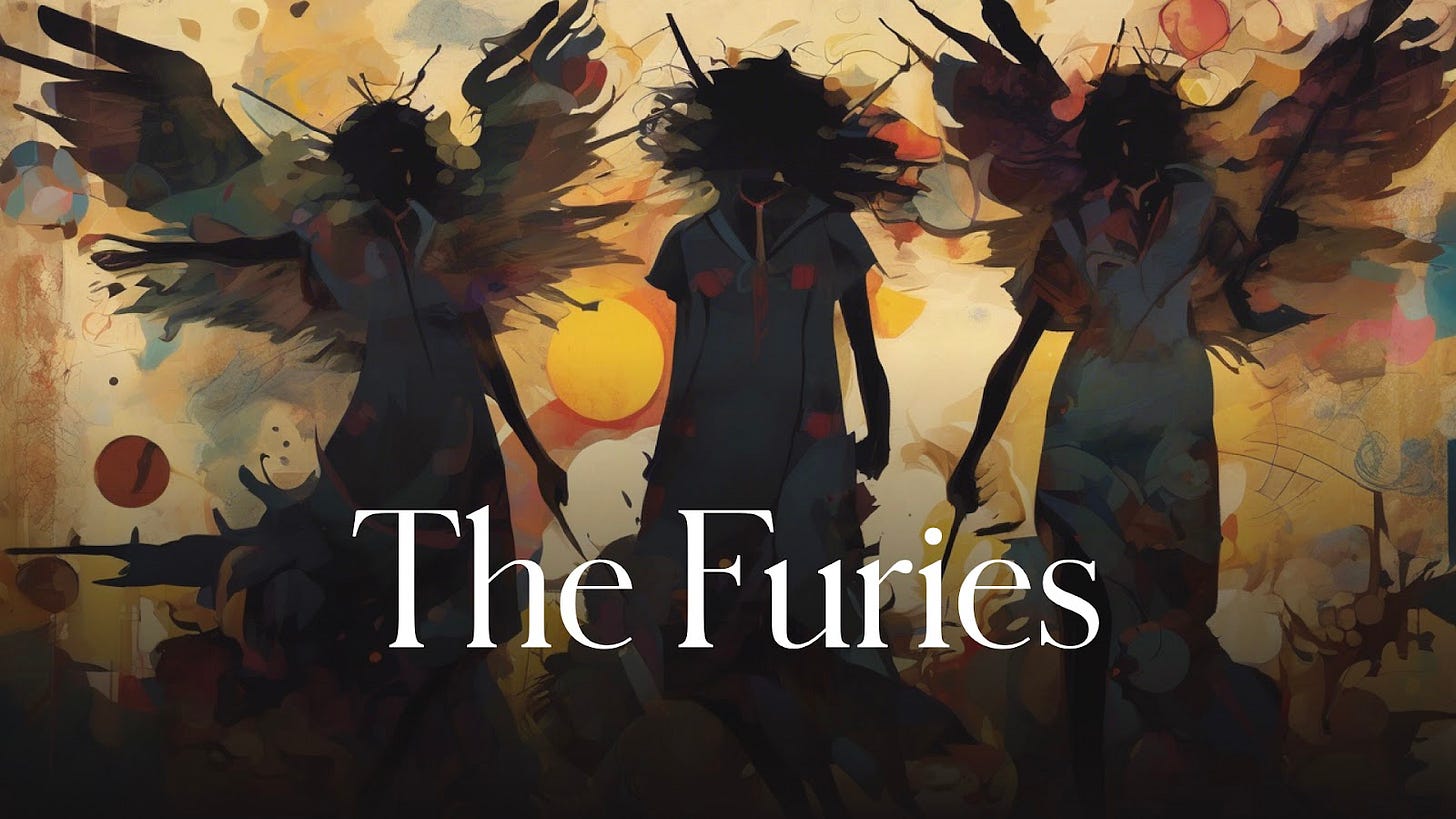
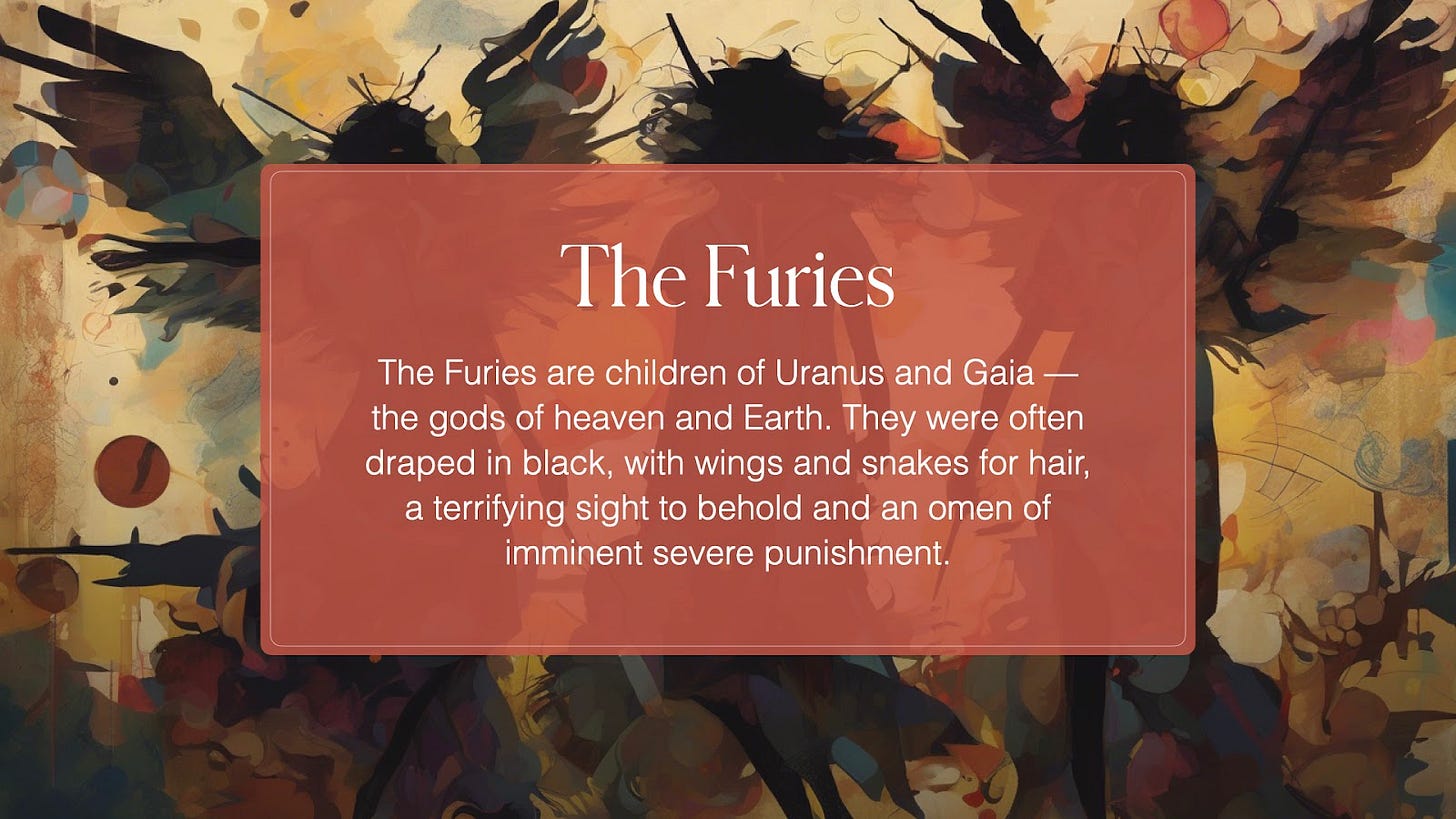
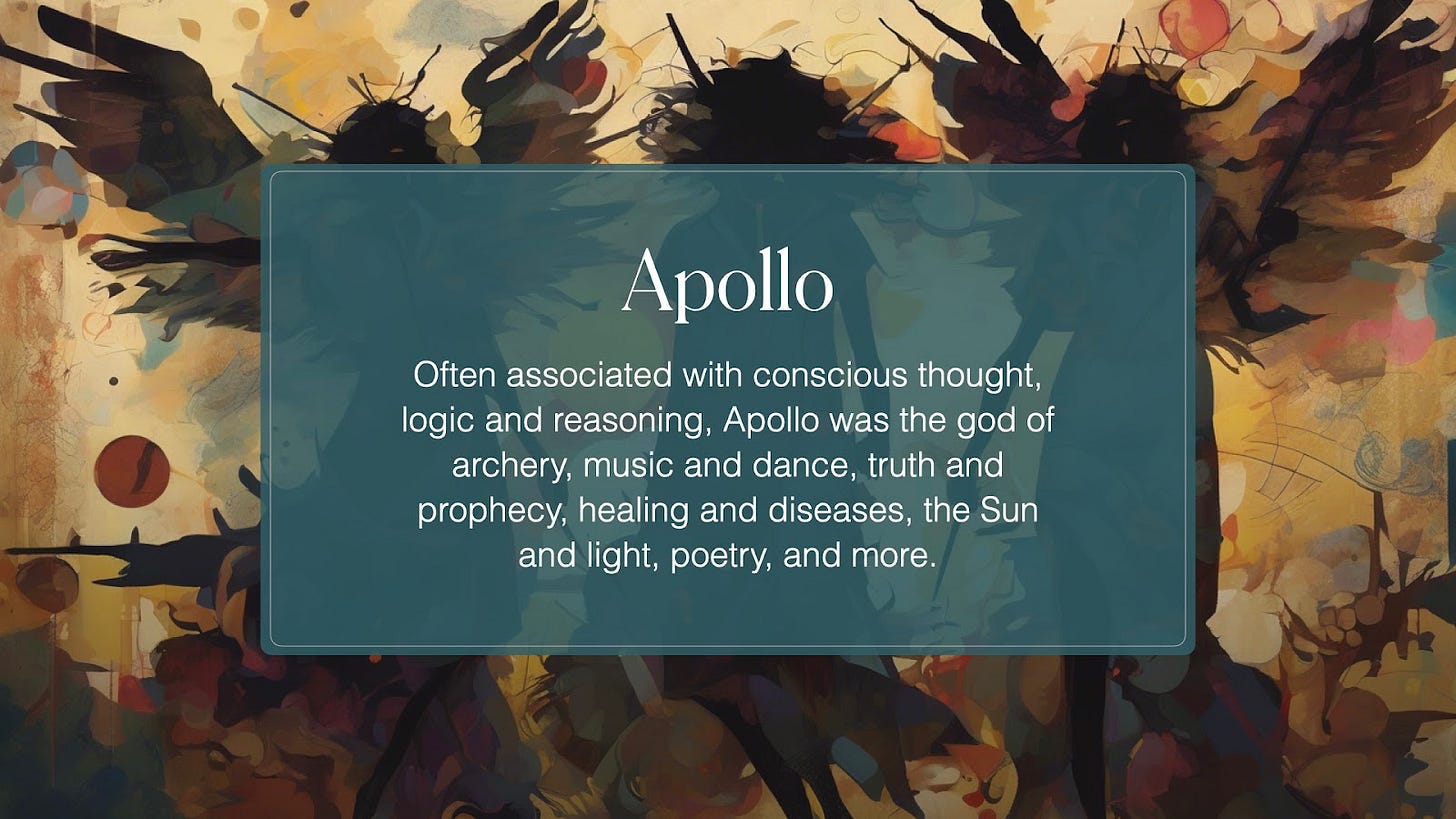
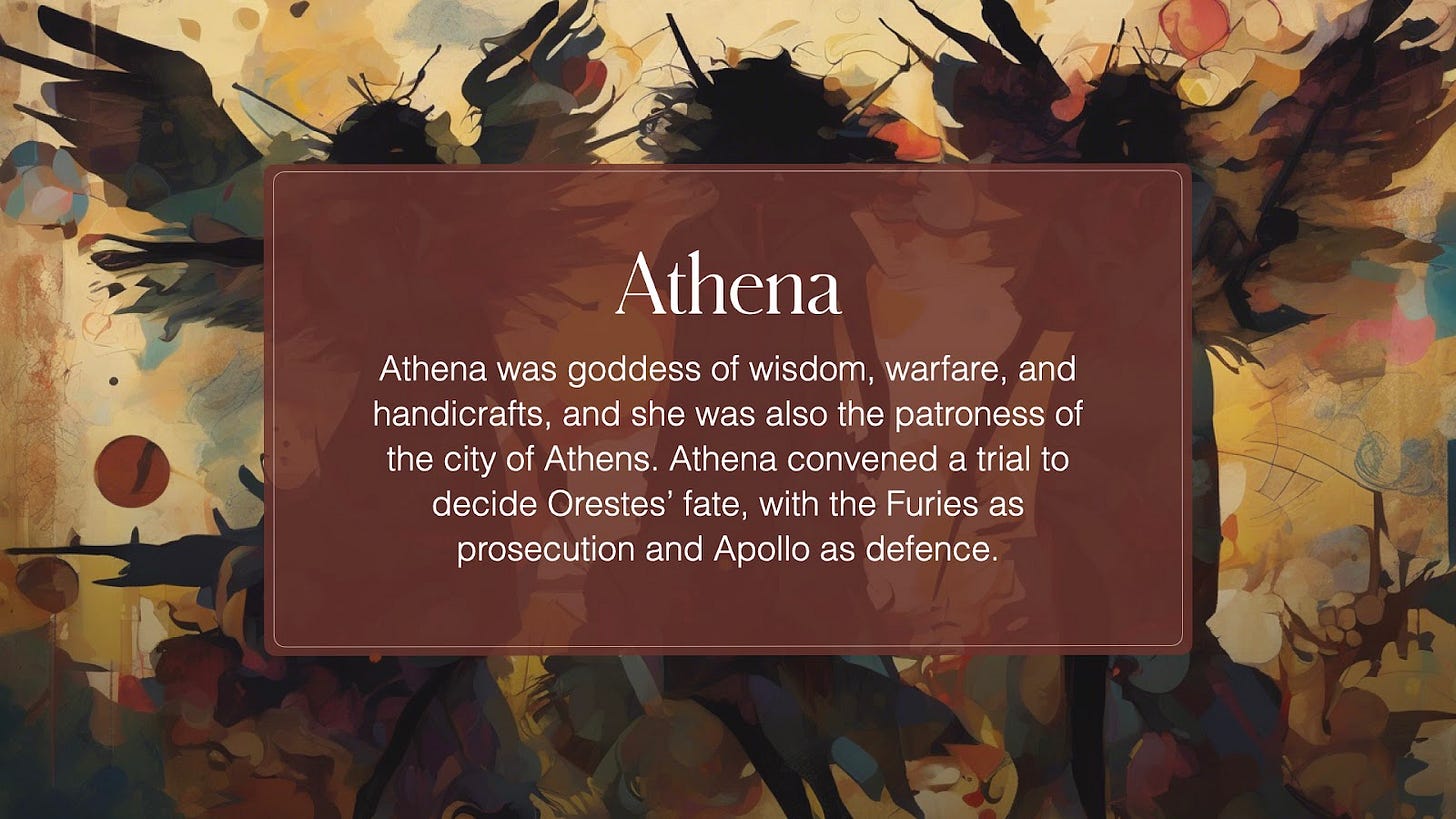
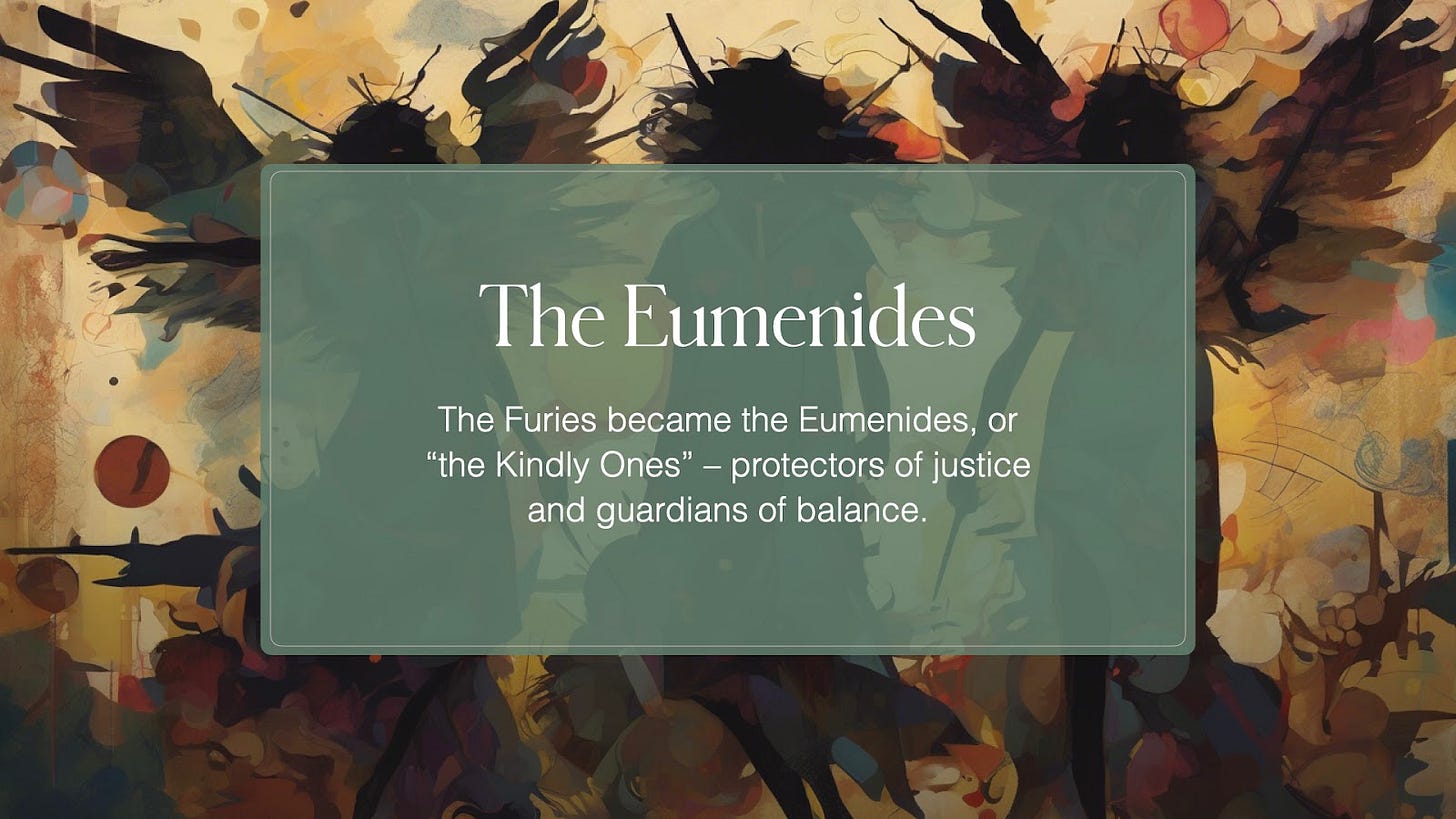
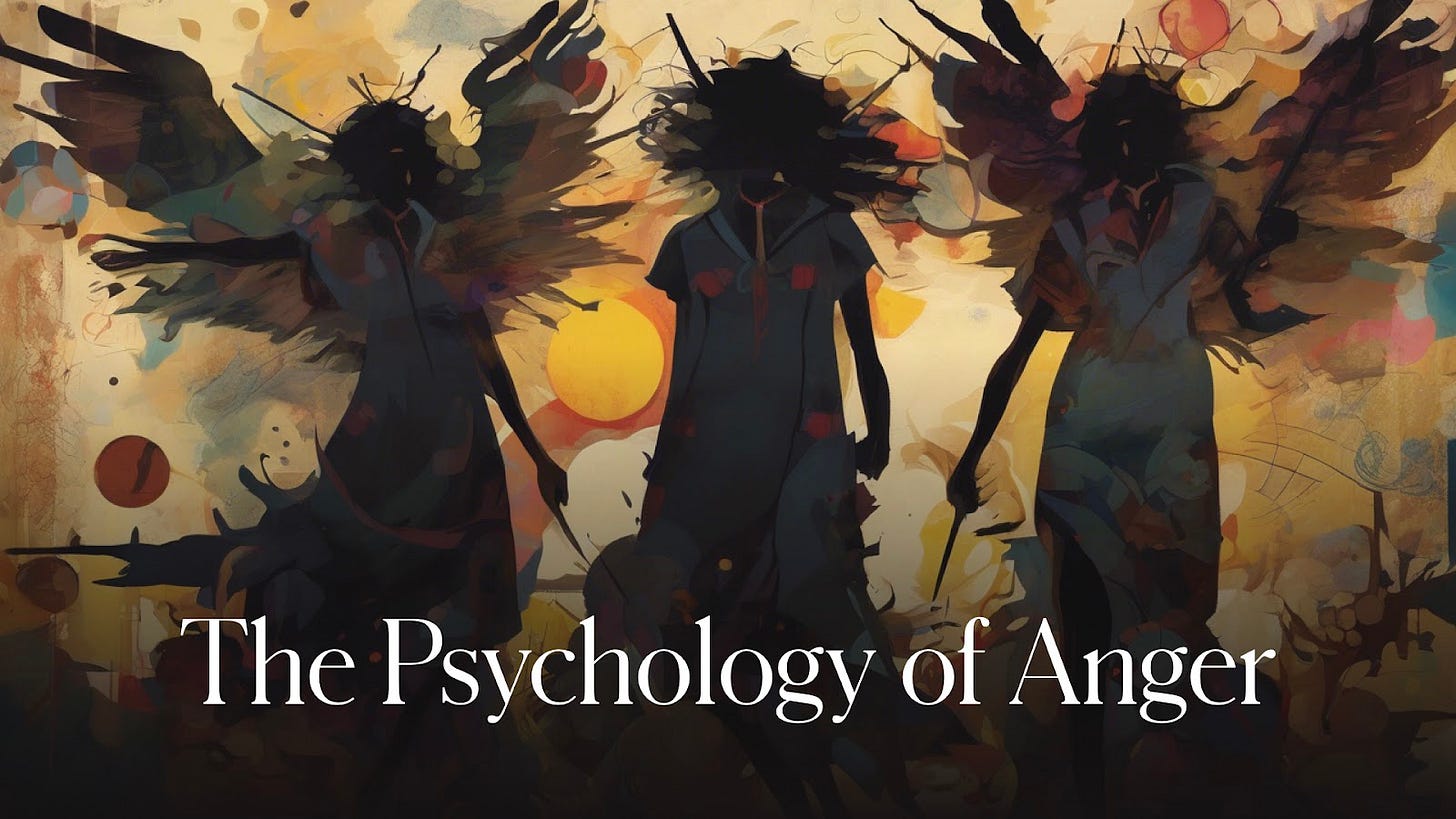
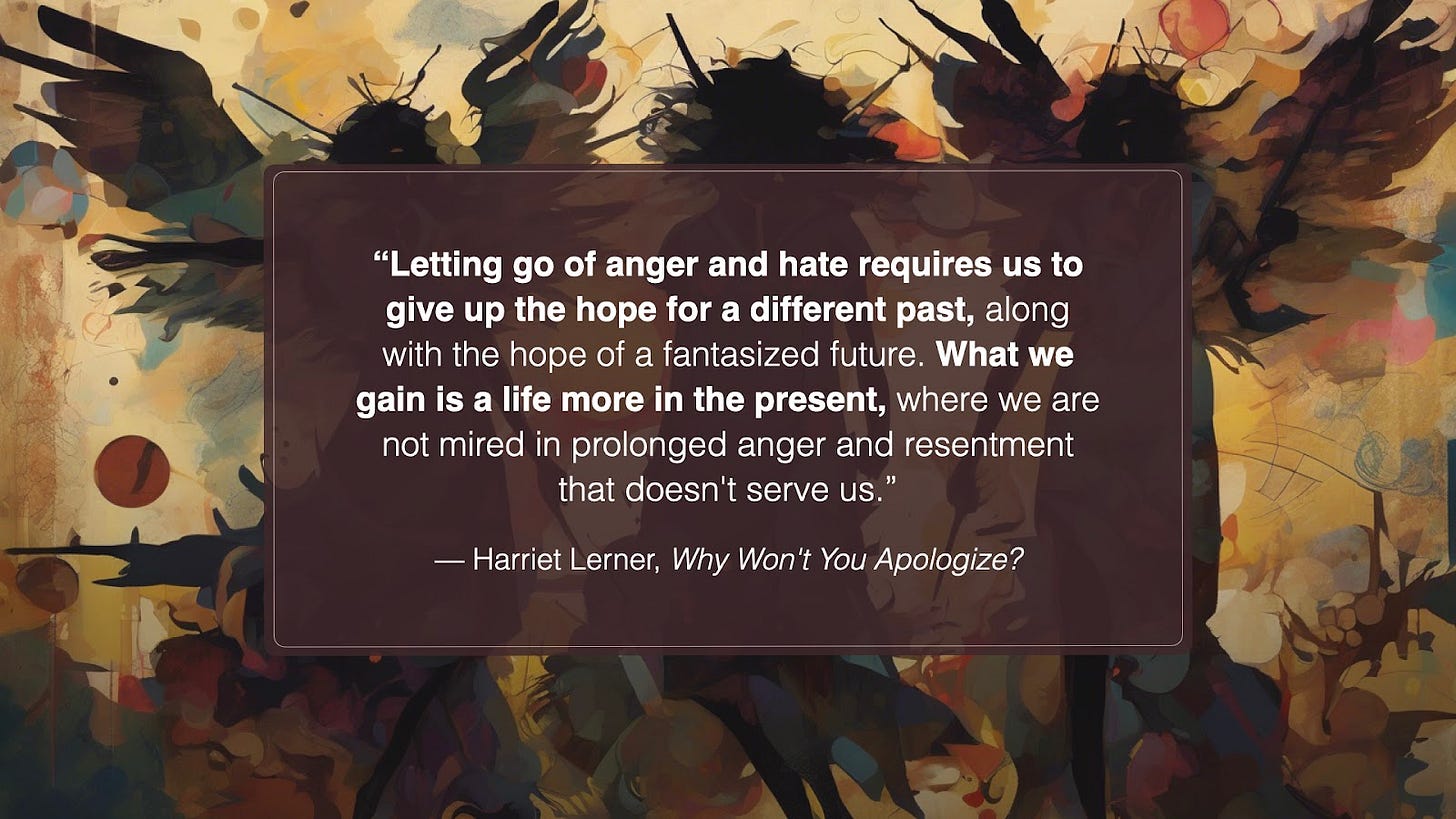
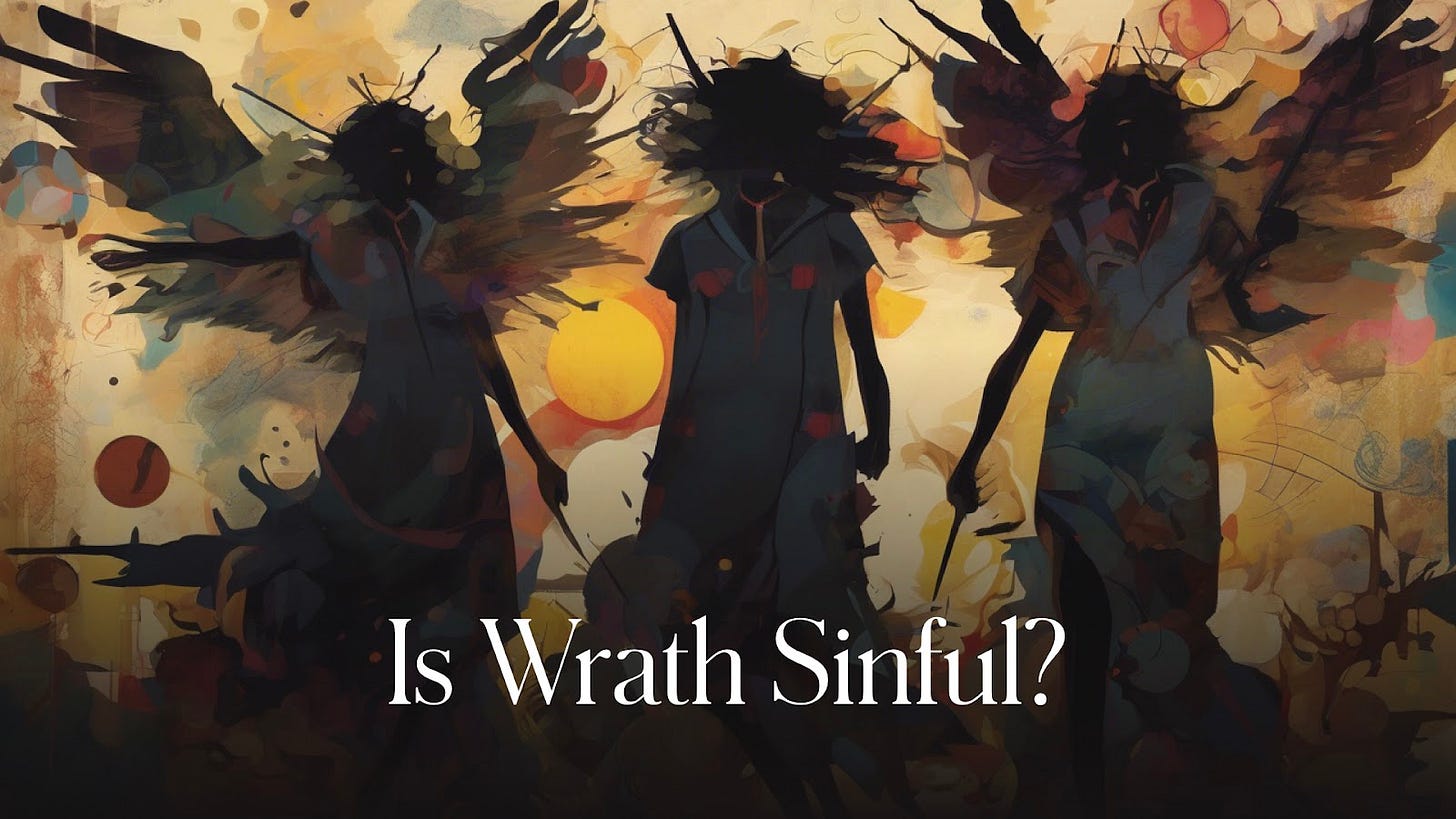
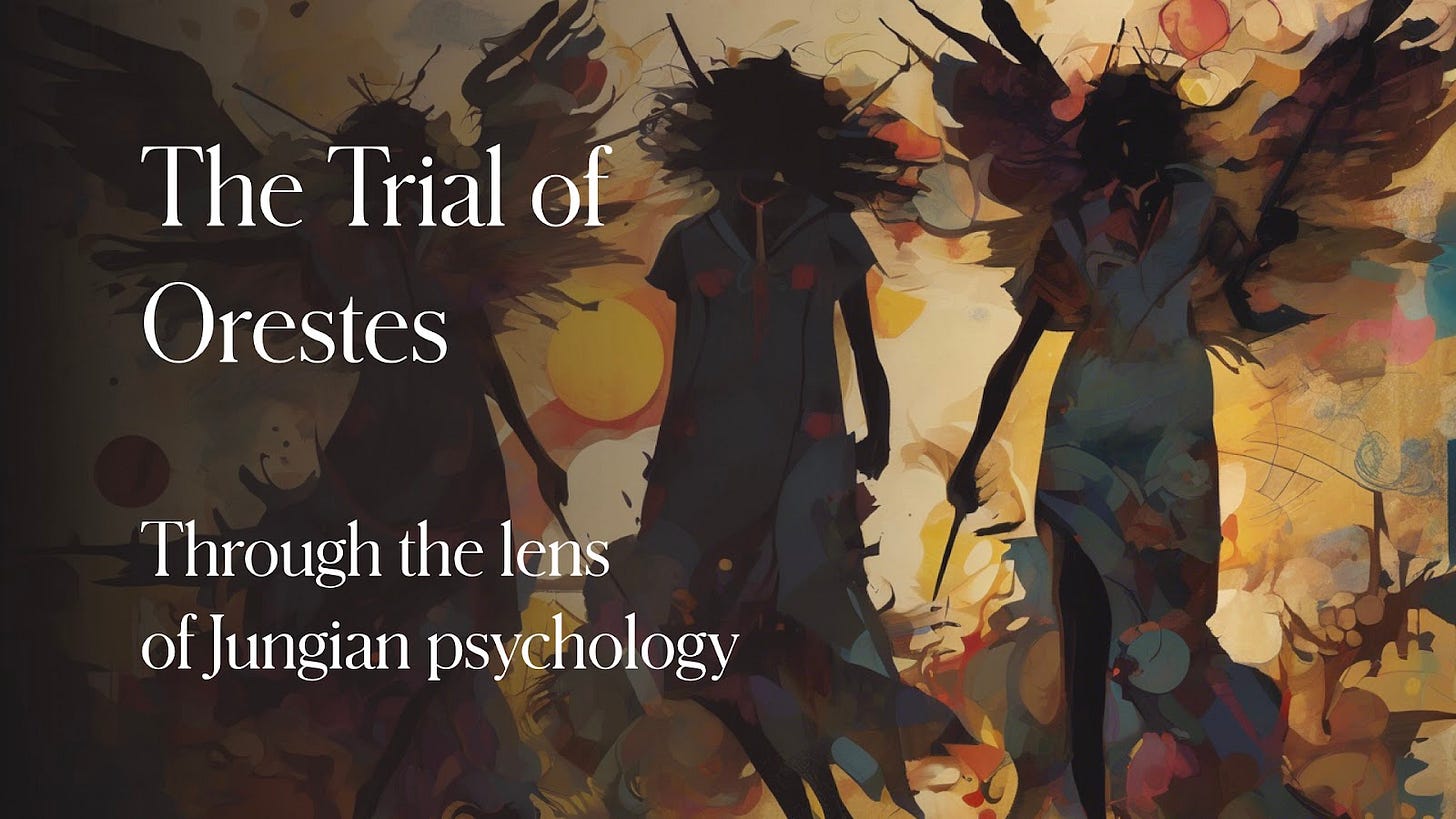
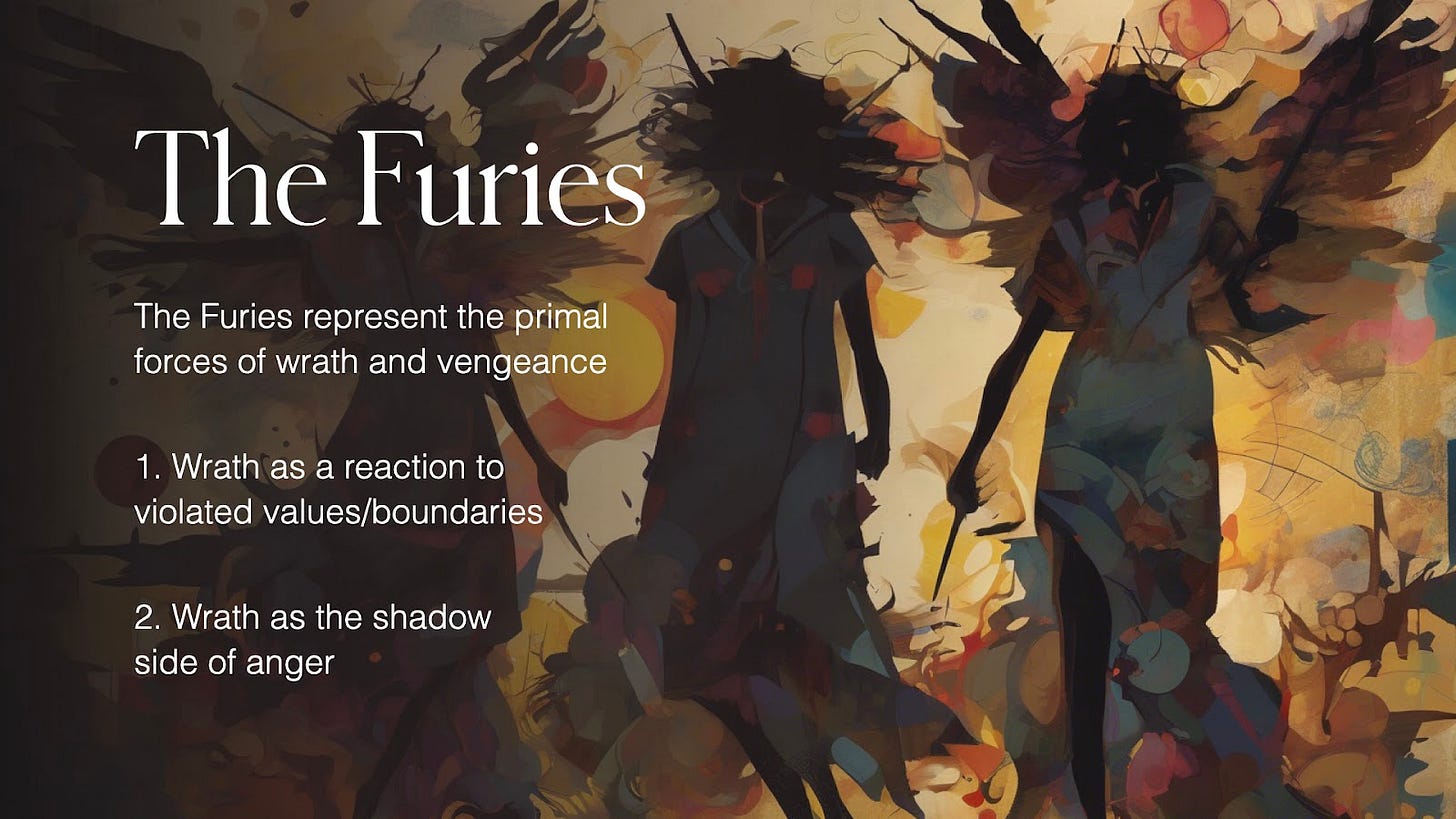
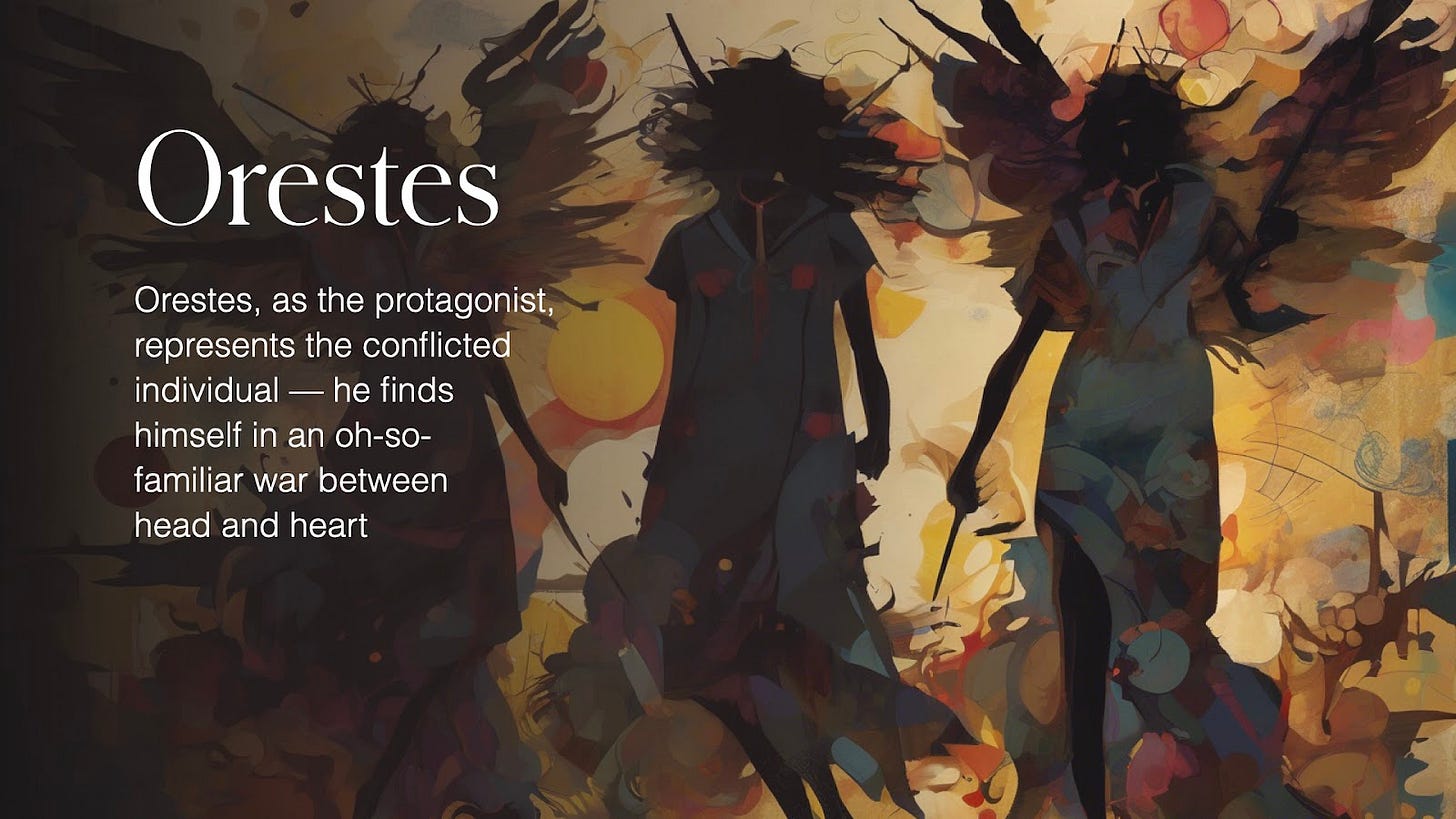
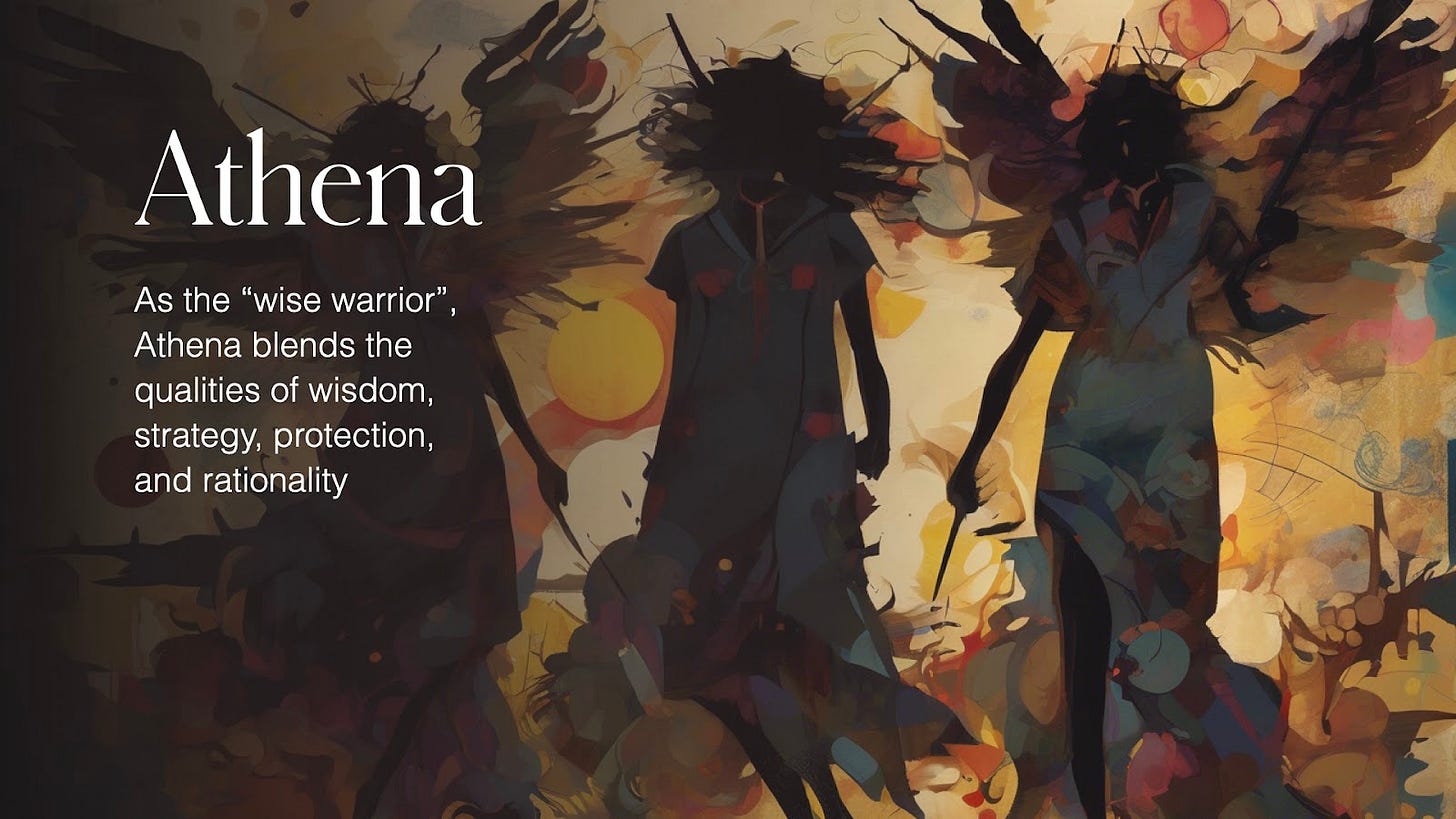
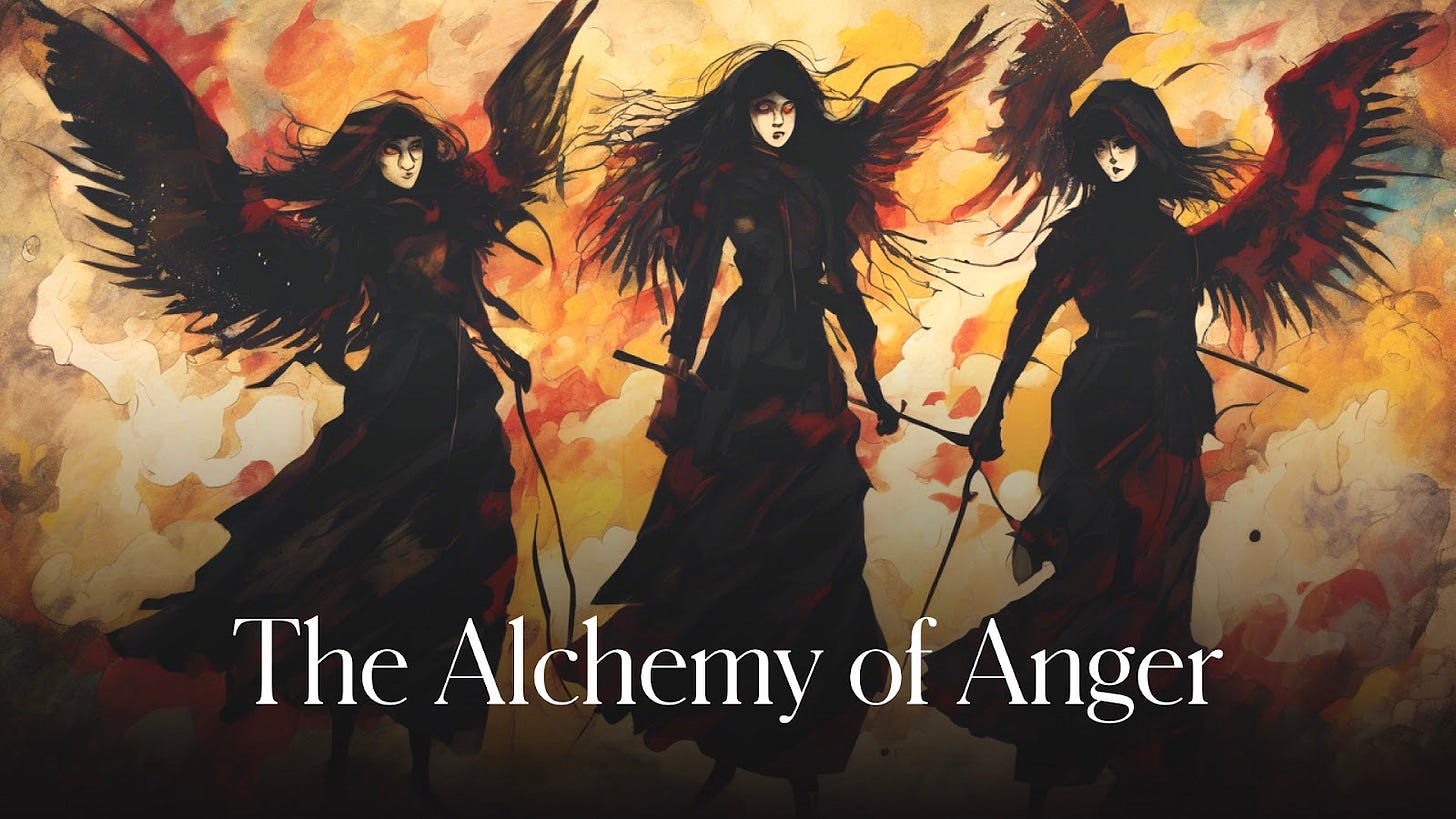
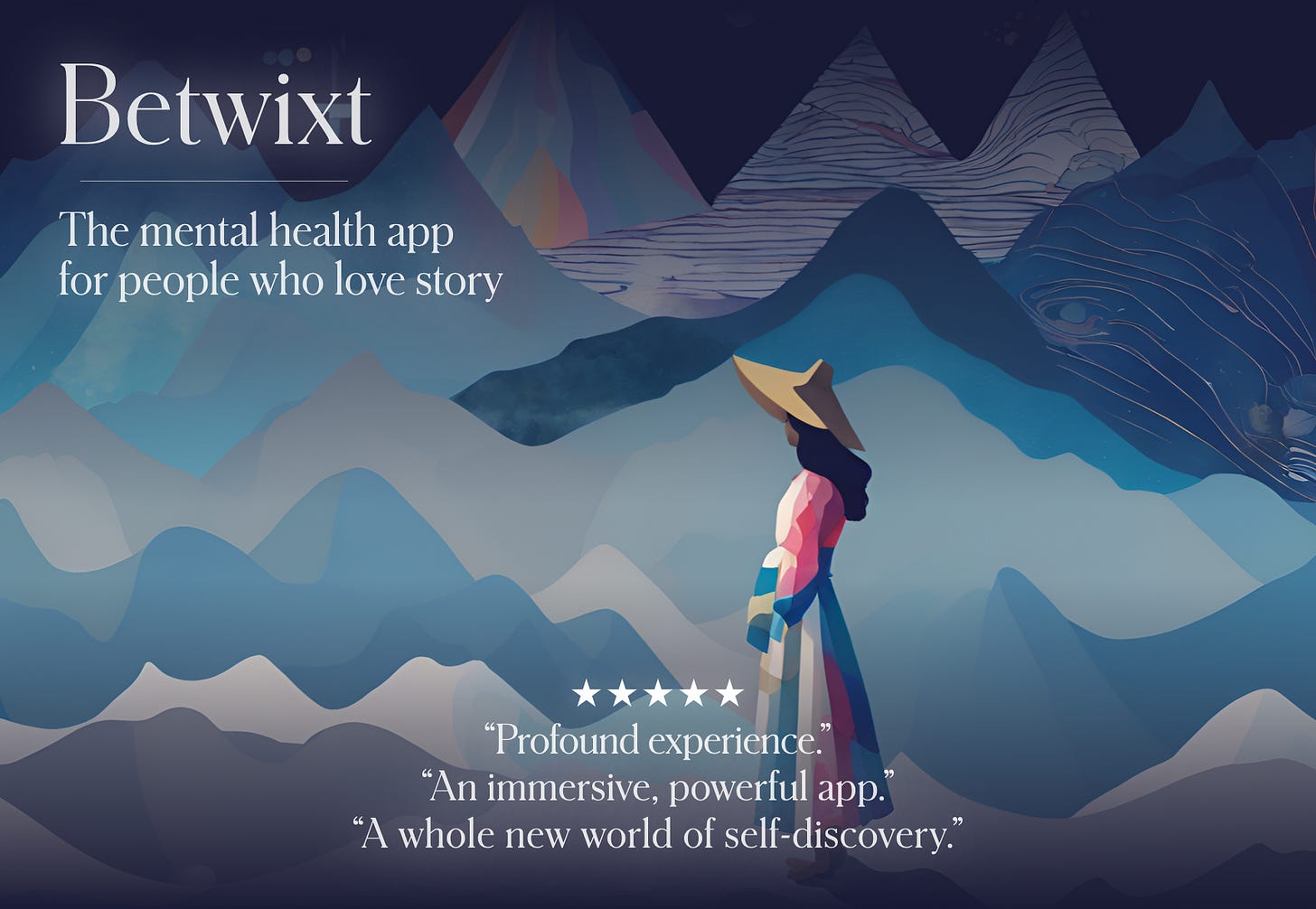
Big questions here! I find anger, or any emotion on that scale, harder to express when it comes up against a wall of defensiveness and over-rationality. In that situation my anger is not heard or honored. I know it's up to me to honor it myself and I'm a work in progress.
Great essay, thanks.
I really needed this today. As a librarian I have mixed feelings on everything happening at all times.
Maybe I can refocus my feelings like the furies and put this energy into good use for justice like an online bookclub that encourages others.